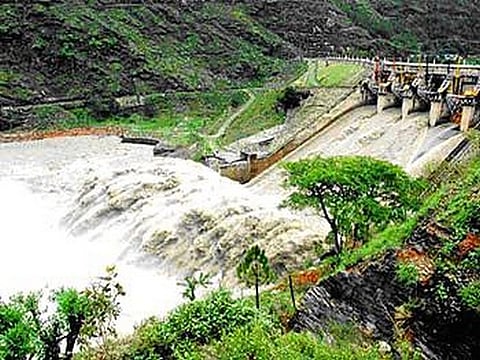Border flare-up to have little macro impact for Delhi: Moody’s
MUMBAI: Ratings agency Moody’s Ratings has said it sees India’s macroeconomic conditions to be stable even if tension with Pakistan following the dastardly killing of 26 Hindu tourists in the Baisaran meadow of Pahalgam area of the Kashmir Valley believed to be by Pak terrorists, escalates.
However, it has warned Pakistan that sustained escalation in tensions with India will likely hit its already battered economy and also hamper the government’s ongoing fiscal consolidation.
The April 22 heinous murder has prompted a series of retaliatory moves by New Delhi including suspension of the Indus Waters Treaty of 1960 and closing the air space and ports for Pakistan among others. In response, Pakistan suspended the 1972 Simla peace agreement, halted bilateral trade and closed its airspace for Indian airlines.
"Sustained escalation in tensions with India would likely weigh on Pakistan’s growth and hamper its ongoing fiscal consolidation, setting back its progress in achieving macroeconomic stability.
“Pakistan’s macroeconomic conditions have been improving, with growth gradually rising, inflation declining and foreign-exchange reserves increasing amid continued progress in the IMF programme. But a persistent increase in tension can also impair Pakistan’s access to external financing and pressure its forex reserves which remain well below what is required to meet its external debt payment needs for the next few years," Moody's said in a note Monday.
On the contrary, the agency said it comparatively sees India's macroeconomic conditions to be stable but warned that higher defence spending will potentially weigh on the nation’s fiscal strength.
"Comparatively, India’s macroeconomic conditions would be stable, bolstered by moderating but still high levels of growth amid strong public investment and healthy private consumption. In a scenario of sustained escalation in localised tension, we don’t expect major disruptions to India's economic activity because it has minimal economic relations with Pakistan (less than 0.5% of total exports in 2024). However, higher defence spending will potentially weigh on the fiscal strength and slow the fiscal consolidation drive," the agency said, adding it's assuming periodic flare-ups between the two nuclear powers but not an outright conflict.
"Our geopolitical risk assessment for Pakistan and India accounts for persistent tensions, which have, at times led to limited military responses. We assume that flare-ups will occur periodically, as they’ve since their independence, but that they will not lead to an outright, broad-based military conflict," said the agency.

